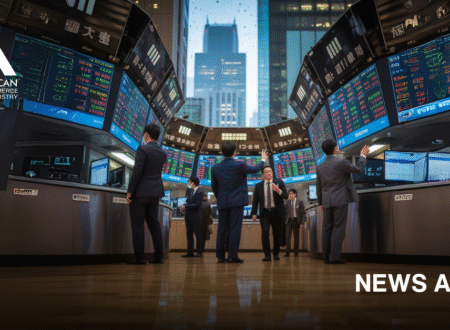A boy from a small coastal village in Kerala once carried sacks on his shoulders under the desert sun of Abu Dhabi. Five decades later, that same boy, M. A. Yusuff Ali, stands as the architect of a retail empire worth over ₹30,000 crore, a name etched across skylines from Kochi to Kuwait. His journey is not just about commerce, but about courage, conviction, and the ability to see opportunity where others saw only odds.
Born in 1955 in Nattika, a fishing village in Kerala’s Thrissur district, Yusuff Ali grew up in a household that valued discipline and enterprise. His family wasn’t wealthy, but his father ran a modest grocery business, which exposed him early to the rhythm of trade. As a boy, he stocked shelves, observed customer behaviour, and absorbed the idea that business was as much about human trust as it was about margins.
Like countless others from Kerala in the 1970s, he dreamed of the Gulf. At 18, he completed a diploma in Business Management and decided to take the plunge. In 1973, with no capital and no roadmap, he boarded a ship to Abu Dhabi. His uncle had a small grocery distribution business there, and his first assignment was brutally humbling, loading and unloading trucks, delivering packages across the city, and handling every menial task in the supply chain.But while others saw drudgery, he was quietly learning. Each box carried insight: Where goods came from, which products sold fastest, and what the customers really longed for.
The 1970s and 1980s transformed the Gulf. Oil wealth was reshaping cities, and with it came a flood of expatriates– Indians, Pakistanis, Filipinos, Bangladeshis, and others, who worked tirelessly to build the region. These communities longed for a taste of home, yet local retail couldn’t serve them. Shops were small, scattered, overpriced, and often lacked consistency. Finding a favourite brand of rice or a packet of spices became a treasure hunt.
It was here that Yusuff Ali saw what others missed. If someone could bring everything under one roof, groceries, household items, clothes, electronics, at prices migrants could afford, it would transform daily life.Then came the Gulf War in the early 1990s. Panic gripped the region. Thousands of expatriates fled, fearing collapse. Many businesses shuttered. But Yusuff Ali made a contrarian bet. Instead of leaving, he doubled down. He nurtured his relationships with suppliers, strengthened his logistics networks, and prepared for the day the region would bounce back. That decision, to stay when others fled, became the cornerstone of his legacy.
In 1995, he launched the first LuLu Hypermarket in Abu Dhabi. The concept was simple but revolutionary: A one-stop hypermarket that offered everything a household might need, from fresh produce and pantry staples to international fashion and electronics. Most importantly, LuLu gave expatriates what they had been missing, a taste of home.
Customers walked into wide aisles stocked with familiar products from India, Pakistan, and Southeast Asia alongside global brands. The pricing was competitive, the variety unmatched, and the experience far superior to fragmented corner stores. Almost overnight, LuLu became a household name.
But the real genius was behind the shelves. Yusuff Ali invested heavily in the back end, global sourcing offices in India, China, Europe, and the US; cold storage facilities; and a robust logistics system. This infrastructure allowed LuLu to maintain freshness, consistency, and affordability at scale, while others struggled. He wasn’t just building stores; he was building an ecosystem. From one hypermarket, the chain spread rapidly across the Gulf. By the 2000s, LuLu was synonymous with reliability, choice, and trust.
Today, LuLu Group International is a retail behemoth. With over 260 stores in 26 countries, the group serves nearly one million customers daily and employs more than 65,000 people from diverse nationalities. In revenue terms, LuLu clocks over US $8 billion annually, making it one of the world’s fastest-growing retailers.
The accolades followed. In 2005, the Indian government honoured Yusuff Ali with the Pravasi Bharatiya Samman, the highest recognition for overseas Indians. In 2008, he received the Padma Shri. Gulf nations too acknowledged his role, culminating in 2021 when Abu Dhabi awarded him its highest civilian honour. Forbes consistently lists him among the richest Indians, his net worth crossing billions of dollars.Yet, he wears success lightly. For him, the true measure lies in the trust of customers who still walk into a LuLu store knowing they will find the comforts of home.
Despite his stature, Yusuff Ali remains grounded. He is married to Shabira, and the couple has three daughters, all of whom married into entrepreneurial families. His sons-in-law lead ventures in healthcare, finance, and hospitality, weaving a business network that extends beyond retail.
Those close to him describe him as deeply spiritual and disciplined. He is known to visit stores unannounced, inspecting shelves and chatting with employees. When Kerala was hit by devastating floods in 2018, he not only pledged crores in aid but personally visited relief camps, offering comfort to the displaced. In Abu Dhabi, he has built schools, hospitals, and even a multi-faith funeral centre to serve the Indian diaspora. For him, business and community are inseparable.
In 2013, Yusuff Ali returned to his home state in triumph, opening LuLu Mall Kochi. At the time, it was among the largest malls in India, complete with retail, entertainment, and hospitality offerings. The mall became a cultural landmark, proving that global standards of retail could flourish in India.
Since then, LuLu has expanded aggressively across the country, launching malls in Bengaluru, Lucknow, Hyderabad, Coimbatore, and Kozhikode. Each project has been more than just a shopping destination; it has been a catalyst for local employment, urban development, and consumer experience.
Beyond retail, his vision stretches into new frontiers. In Kochi, LuLu is building futuristic IT twin towers, promising over 7,500 jobs. In Andhra Pradesh, the group is investing in food processing and logistics centres to empower farmers and small entrepreneurs. Across the Middle East, he continues to expand into Africa and Southeast Asia, with sights set on becoming a truly global brand. Of course, challenges remain. In 2024, LuLu faced a data breach that compromised customer records, highlighting the vulnerabilities of modern retail. Competition is fierce, both from e-commerce giants and homegrown challengers. Yet, if history is a guide, Yusuff Ali has shown a rare ability to adapt, survive, and thrive in the toughest conditions. Asked about his philosophy, he once said:
“Business is not only about profit. It is about people, the people who trust you, who work with you, and who grow because of you.”
From carrying sacks in Abu Dhabi to carrying the hopes of millions across continents, M. A. Yusuff Ali’s life embodies the audacity of dreams. His journey is proof that success is not about the perfect plan but about staying committed when the world walks away. The boy from Nattika who once sweated under the desert sun has become a global symbol of resilience and vision. And as LuLu Group continues to expand, his story remains a reminder that even the humblest beginnings can build empires that touch lives across the world.


